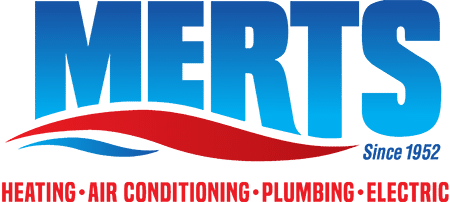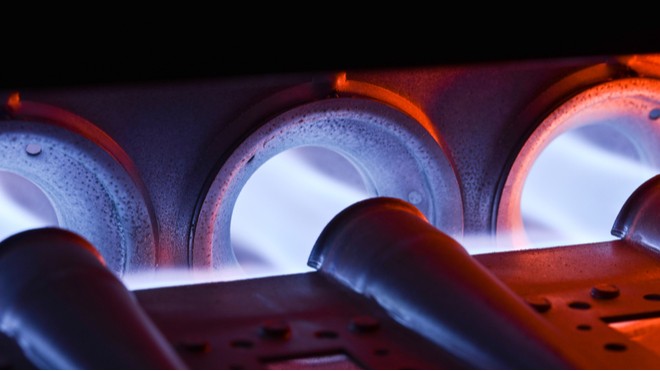Anytime you burn fuel of any type you create deadly carbon monoxide gas. So why doesn’t the furnace in your Illinois or Northwest Indiana home kill you? It’s because of something called a heat exchanger. It is what separates the safe breathable air from the gases created during the combustion process. The simplest way to describe a heat exchanger is as a chamber that guides those harmful gases to the flue to be carried outside the home.
But How Does it Actually Work?
The burning fuel heats the walls of the heat exchanger to a very high temperature. The cool air coming from the return ducts in your home circulates around the walls of the heat exchanger. The heated air is then circulated throughout the home without ever coming into contact with the gases created by the combustion process.
A Key Part of Furnace Maintenance
When a Merts Heating & Air Conditioning technician comes to your home for furnace maintenance or repair, he or she will closely examine the heat exchanger. A cracked heat exchanger can allow carbon monoxide to mix with the heated air and be distributed throughout the house with deadly consequences. If a crack is found, the exchanger must be replaced immediately. This is an extremely labor-intensive repair which means it’s also expensive. Many times, it makes more sense to replace the entire furnace.
It’s a Tough Job
Heat exchangers fail because of the extreme conditions inside your furnace. Every heating cycle means the exchanger expands when it’s heated and then contracts as the heat is transferred throughout your home. This can happen eight times an hour, 192 times a day, or nearly six-thousand times a month. The expansion and contraction is like bending a wire back and forth until it eventually breaks or cracks. Other factors can speed up the process including:
- Bad design and installation.
- Poor equipment design by the manufacturer.
- Improper maintenance.
Merts is Here to Help
Heat exchangers are just one more reason to make sure you don’t ignore furnace maintenance. While things like improving efficiency to save money on your monthly heating bills are nice, nothing is more important than keeping you and your family safe. That means regular inspections of your heat exchanger to prevent deadly carbon monoxide poisoning in your Illinois or Northwest Indiana home. Be sure to like and follow us on Facebook and Twitter.

